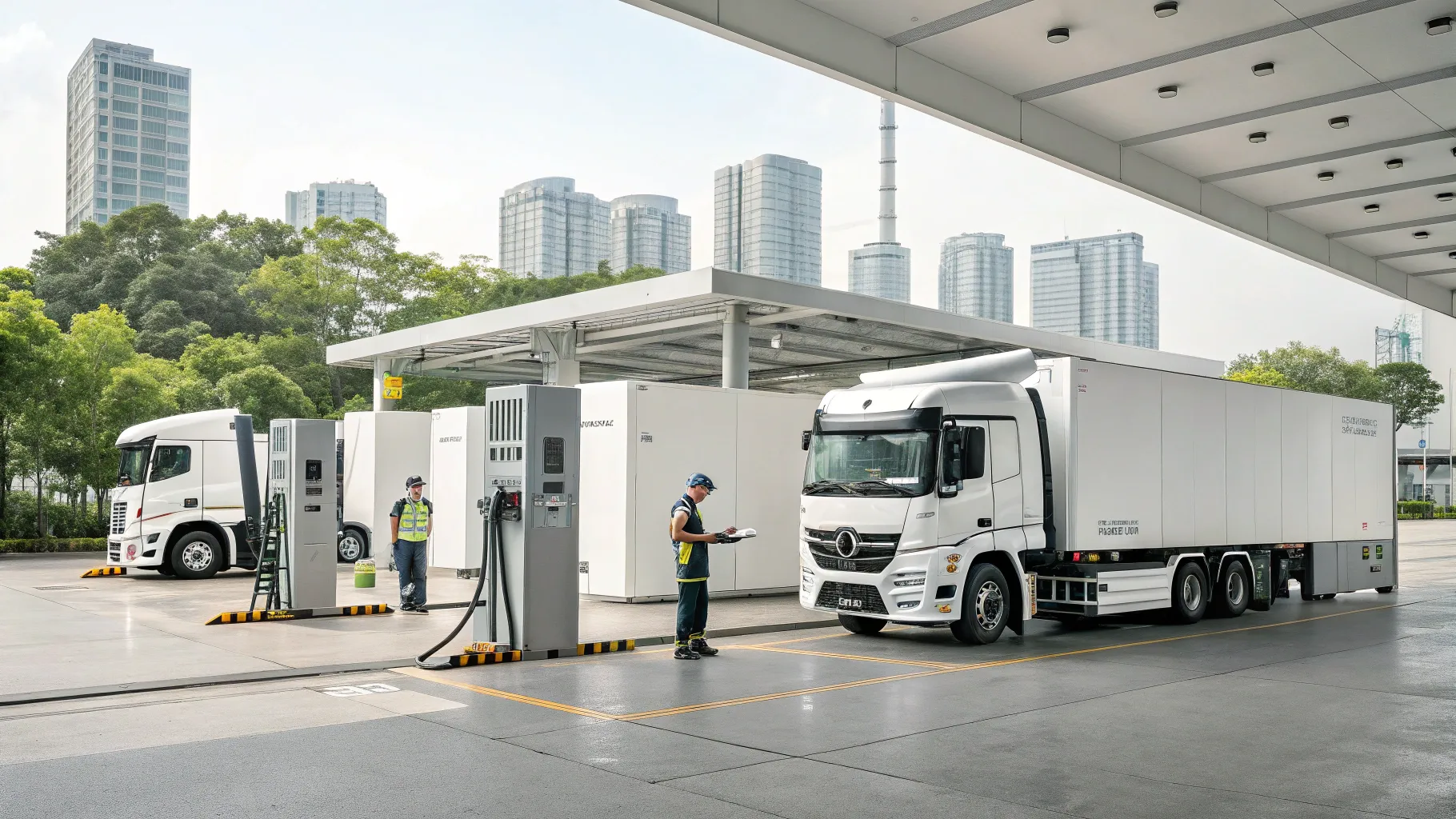Singapore has launched its first charging and swapping station for large electric trucks, marking a significant advancement in the city-state’s transportation electrification efforts. The facility can replace batteries in under five minutes, addressing key challenges in Singapore’s push toward sustainable transportation.
The new station represents an innovative approach to electric vehicle infrastructure in dense urban environments. By enabling quick battery exchanges rather than lengthy charging sessions, the system helps overcome two significant obstacles: limited space for charging infrastructure and potential strain on the electrical grid.
Solving Urban Electrification Challenges
The battery swapping model offers several advantages over traditional charging methods. When a truck arrives with a depleted battery, it can be quickly replaced with a fully charged one, allowing the vehicle to return to service almost immediately. This rapid turnaround eliminates the extended downtime associated with conventional charging.
Space constraints have been a persistent challenge for Singapore’s electrification plans. The city-state’s limited land area makes it difficult to allocate sufficient space for large-scale charging facilities. The swapping station’s efficient design maximizes the use of available space while serving multiple vehicles.
Grid management represents another critical benefit of the system. By charging batteries at the station during off-peak hours and making them available for swapping throughout the day, the facility helps distribute energy demand more evenly, reducing peak loads on Singapore’s electrical infrastructure.
Global Implications for Urban Transportation
The Singapore facility serves as a potential model for other densely populated cities facing similar challenges with electric vehicle adoption. Urban centers worldwide struggle with limited space for charging infrastructure and concerns about grid capacity as electric vehicle numbers increase.
Transportation planners and sustainability experts will closely monitor the station’s performance from other high-density metropolitan areas. Success in Singapore could lead to similar implementations in cities across Asia, Europe, and North America.
Key advantages of the battery swapping approach include:
- Reduced vehicle downtime compared to traditional charging
- More efficient use of limited urban space
- Better distribution of electricity demand throughout the day
- Potential for centralized battery management and maintenance
Commercial Transportation Impact
The focus on large trucks highlights the importance of decarbonizing commercial transportation. Heavy vehicles contribute significantly to urban emissions despite making up a smaller percentage of total vehicles on the road.
For fleet operators, the sub-five-minute battery swap time offers a compelling alternative to extended charging periods. This efficiency could accelerate the adoption of electric trucks by addressing operational concerns about vehicle availability and route planning.
The station also creates opportunities for new business models in the electric vehicle ecosystem. Battery ownership could be separated from vehicle ownership, potentially reducing the initial cost of electric trucks and shifting battery maintenance responsibilities to specialized service providers.
As Singapore continues its transition toward sustainable transportation, this charging and swapping station represents a practical solution to real-world challenges. Its performance will help determine whether battery swapping becomes a standard approach for electrifying commercial vehicle fleets in space-constrained urban environments worldwide.







